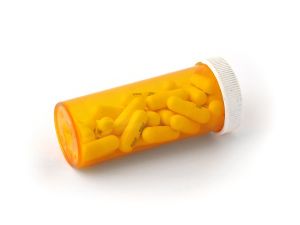Medication is a cornerstone of treatment for many children and adults battling ADHD; while these drugs may produce varying degrees of success in coping with symptoms, unpleasant side effects are all too common; side effects that can be so troublesome, it may interfere with proper use of the medicine. While dealing with negative effects of medications are often part of the game when using prescription drugs to manage our health issues, we can exercise a greater degree of control over side effects by being diligent in employing strategies known to mitigate them. Fortunately, there are some known techniques that may help reduce side effects of ADHD medication in you or your child.
Loss of Appetite
Lack of appetite is one of the most common symptoms of ADHD medications; for many, this side effect may abate after taking the drugs for a few weeks, but if you find this symptom is persisting, there are some things you can do to work around it. You can usually get a good breakfast in as the effects of the first dose of the day have not kicked in yet, so take advantage of this window to get in some healthy calories; depending on your schedule, you might also consider holding off on taking your first dose until after you eat. You may not be as hungry during the day, but at the very least, keep some healthy snacks on hand or a meal-replacement shake rich in important nutrients. Eating dinner later in the evening, say 8 p.m., may help as the effects of the most recent dose typically begin to fade.
Trouble Sleeping
Difficulty falling asleep is another common problem, and is particularly problematic if you or your child has ADHD; lack of sleep will only exacerbate symptoms, making them more difficult to control. A bedtime ritual that prepares you mentally and physically for sleep can be very helpful. Perhaps you can take a nice hot shower or bath, read a book or engage in any other activity that you find relaxing. You might benefit from adjusting your medication schedule so it is out of your system earlier in the evening, or reducing your doses later in the day. If you are currently taking a long-acting form of the medication, switching to a shorter-acting one may be beneficial. You might also consider an evening session of meditation or deep breathing—studies of both techniques in children and adults with ADHD have found they may help reduce symptoms and quell anxiety.
Rebound Effect
The rebound effect occurs when the medications wear off and symptoms come back, typically more intensely than usual. If you or your child is experiencing this problem after that last dose of the day wears off, you have a few options. If you are taking short-acting medications, you may consider switching to a long-lasting one; you could also take a smaller than normal dose of a fast-acting medication. If an extended-release medication is creating a new problem in the form of trouble sleeping, switching to a non-stimulant medication may be the best option.
Kelli Cooper is a freelance writer who enjoys blogging about various health topics; if you are interested in learning more about coping with ADHD as an adult, she highly recommends this helpful site.
Photo Credit





